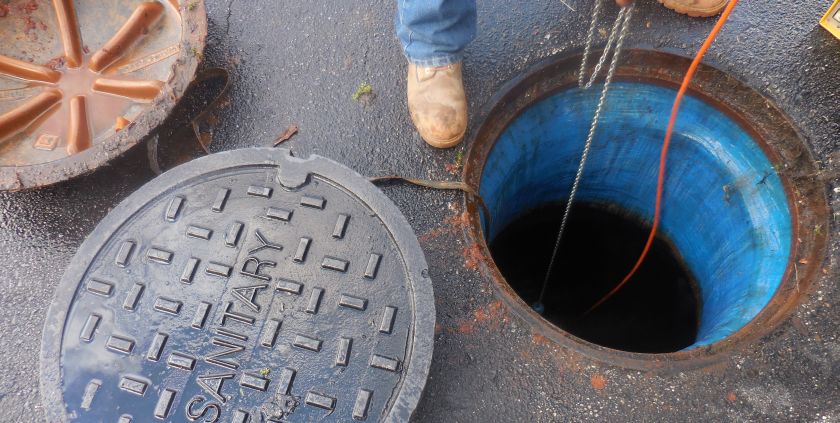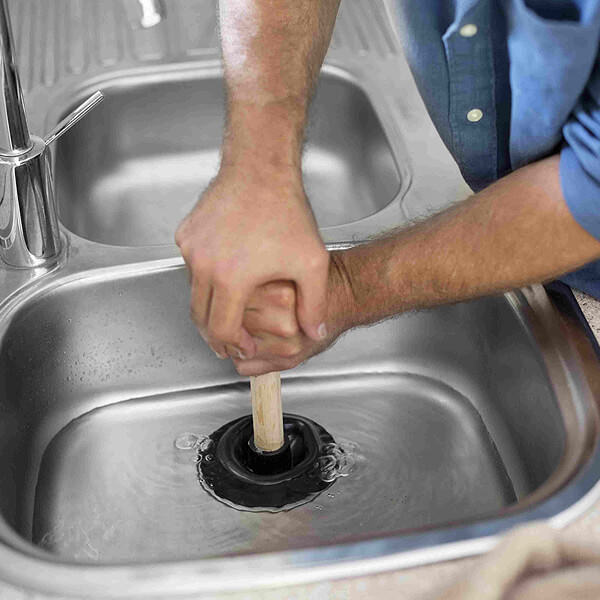How do you feel in regards to How to handle a clogged drain in your home?

Introduction
Handling a blocked drainpipe can be a discouraging experience, disrupting day-to-day activities and potentially creating damage to your residential or commercial property. However, prior to reaching out to pipes specialists, there are actions you can require to deal with the problem on your own. In this guide, we'll check out DIY services and safety nets to deal with a blocked drain effectively.
Determining the Concern
The initial step in dealing with a blocked drainpipe is identifying the indicators. Slow drain, gurgling noises, foul odors originating from drains pipes, or water backing up are common indications of a blocked drainpipe. Identifying these indicators early can assist avoid further problems.
Usual Reasons For Blocked Drains
Understanding the aspects that contribute to drain blockages is essential for efficient resolution. Common offenders include hair, soap residue, grease, food debris, and foreign items like hygienic products or paper towels. Tree origins attacking underground pipes can additionally create significant obstructions.
Do it yourself Solutions
For small blockages, numerous DIY services can be effective. Pouring boiling water down the drain can aid liquify grease and debris. Baking soda and vinegar or a mixture of salt and baking soft drink can function as natural cleaners. Using a bettor or plumbing serpent to dislodge obstructions is one more alternative.
Tools and Devices
Having the right tools handy can make DIY drainpipe cleaning much more effective. A plunger is a functional device for getting rid of blockages in sinks, commodes, and showers. A plumbing serpent or auger can reach much deeper obstructions, while drainpipe cleaning chemicals can be used carefully for stubborn blockages.
Preventive Measures
To avoid future obstructions, adopting preventive measures is critical. Install drainpipe guards or strainers to capture hair and debris before they get in the pipelines. Regularly flush drains pipes with hot water to liquify grease build-up, and stay clear of disposing of oil or solid waste down the drain.
When to Call a Professional
While DIY remedies can settle small clogs, particular indications suggest the need for specialist aid. Relentless obstructions, foul odors despite cleaning initiatives, or several drains supporting concurrently are red flags that call for expert treatment.
Picking the Right Plumbing Solution
When picking a pipes service, take into consideration variables such as experience, licensing, and customer reviews. Pick a reputable plumber with a performance history of top quality handiwork and clear pricing practices.
Expense Considerations
The expense of specialist drainpipe cleaning services can vary relying on the severity of the clog and the plumbing's rates. Request quotes from multiple service providers and ask about any kind of added fees to make sure openness and stay clear of shocks.
Safety and security Precautions
When attempting do it yourself drain cleaning, focus on safety and security. Put on safety handwear covers and eyeglasses to prevent contact with dangerous chemicals or microorganisms. Never blend various drainpipe cleansing items, as this can produce unsafe fumes.
Instance Researches
Real-life examples highlight the effectiveness of do it yourself remedies and the value of prompt expert treatment in fixing drain blockages.
Verdict
By complying with the pointers laid out in this guide, you can effectively tackle blocked drains and prevent future pipes problems. Whether choosing DIY solutions or seeking specialist support, punctual action is key to preserving a healthy plumbing system and maintaining the stability of your home.
9 Ways You Can Clear a Blocked Drain
Blocked Drains from Hair
We’ve seen it all before, a build-up of hair that’s leads to a clogged drain. Most times it’s a moderately easy task to simply ‘remove the hair’, but if it’s not cleared up straight away – it can cause a lot of issues down the line.
Hair falling off the body in the shower or while getting ready over the sink and in the bathroom is one of the most common causes of blocked sinks and drains. But whilst it’s a common problem for many homeowners, there are ways you can fix your drain and put a long-term solution in place.
How to Fix Blocked Drains from Hair?
What to do: Small amounts of hair can be removed by pulling it out with gloved hands to avoid it getting worse. Drain cleaning devices such as drain spiders can also be purchased to help remove the hair from the drain. However, it’s important to be careful as some devices and cheap hair removal chemicals can make the problem worse.
It’s important to remove the hair before it gets clogged into the entry of the drain pipes. If you’re unable to reach the hair or the devices aren’t working as intended, it’s time to speak to a blocked drain specialist.
Blocked Drains from Plants and Dirt
Natural debris like trees, shrubs, dirt and leaves can be an issue for water drains, especially after spring and autumn. Your regular garden and drain maintenance that keeps the outdoor area looking great is also essential to the productivity of your water drains and pipes.
Leaves aren’t the only culprit, however – tree roots are notorious for growing underneath in search of water and as a result, will usually head straight to your drains.
How to Fix Blocked Drains from Plants and Dirt?
What to do: To prevent plants, leaves and dirt from blocking the drains, keep the outdoor area clear of fallen leaves and debris. If this mess is left long enough, it will cause your drains to become severely blocked.
Keep your trees well-watered so they are less drawn to the drains as a source of moisture and stay away from clogging plants where possible; like willow trees, oak trees, magnolias, boxwood shrubs, palm trees and gum trees.
While ensuring your yard is free from leaves and dirt is a great way to prevent build-up, sometimes the real issues lay under the surface. Tree roots can crack your drain pipes beneath your home – causing severe blockages and leaks. Specialist drain cleaning equipment can be used to clear the blockage and pipe relining technology can provide a long-term structural repair.
Blocked Drains from Grease Build-up
Like hair in the bathroom, grease and fat will build-up in the kitchen sink over time. These fatty substances are a very common cause of blocked drains and pipes and can be a nuisance to clear out.
Any grease waste or fatty substance that is washed down the sink will stick to the inside of the pipes and eventually build up to a point no liquid can pass through. It’s important to be aware that this grease doesn’t leave the pipes as easily as you would expect.
How to Fix Blocked Drains from Grease Build-up?
What to do: Avoid washing these fatty ingredients down the affected drain as much as possible. Grease that’s washed down the drain will cool and harden in the pipes.
A smart way to prevent this build-up of grease is to start collecting all glass jars that you purchase at the supermarket. Then, instead of pouring this oil or kitchen grease down the drain, put it in the small glass or plastic containers to discard with your garbage.
Blocked Drains from Toiletries
As more people get into the habit of disposing of toiletries down the drain, bigger problems are being caused in our pipes and sewers. Nappies and baby wipes are the two common issue items known to block drains after being flushed down the toilet.
Such items become immersed with water, they absorb the moisture and enlarge, quickly blocking access to water drains and pipes.
How to Fix Blocked Drains from Toiletries?
What to do: This way of disposing of toiletries is dreadful for the environment and everyone should be encouraged to dispose of toiletries the right way. In the home, these items should be taken out with your garbage, just as people should make use of the designated bins when using public changing rooms and toilets.
Blocked Drains from Heavy Rain and Storms
Throughout the wet season, drains will experience floods of water because of heavy rainfall. Because drains aren’t really designed to take the full impact of this weather, water build-up can be common in many Perth households.
When there is an overflow of rainwater in gutters and downpipes, there’s a good chance there’s a blocked drain that needs to be cleared out.
How to Fix Blocked Drains from Heavy Rain and Storms?
What to do: Ensure gutters and outdoor drains are cleaned during the wet season to prevent a build-up of leaves which will cause a bigger blockage. Problems caused by heavy rain and storms will usually require a plumber to help unclog and assist with the wastewater removal. If this is the case, contact them as soon as possible to prevent further build-up and potential flooding in your home and yard.

Do you really like reading up on What I learned from trying to deal with a clogged drain? Leave a remark down the page. We would be delighted to listen to your responses about this review. In hopes that you come back again in the future. Sharing is good. Helping others is fun. I praise you for being here. Please visit our site back soon.
Book Today
Comments on “Strategies for Dealing with a Blocked Drain Before Engaging Expert Plumbers”